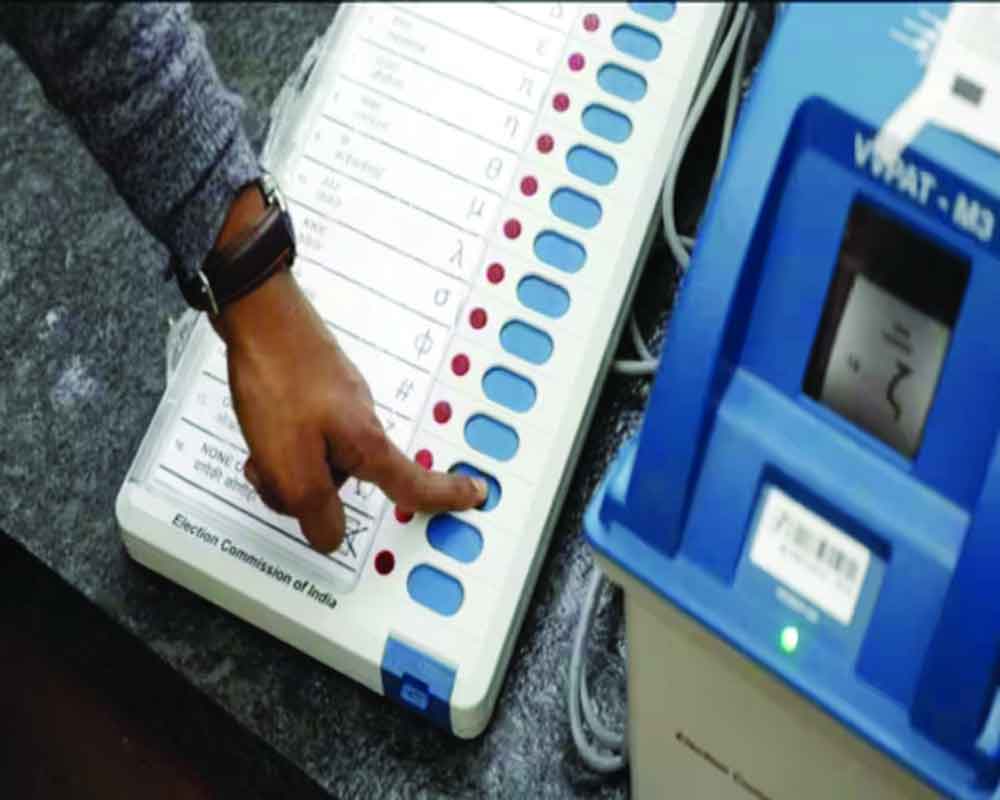The apex court has summarily rejected the idea of reverting to ballot papers for registering votes
General elections would be held through Electronic Voting Machines (EVMs) as the Supreme Court has voiced its disapproval of criticism directed towards them; it has summarily dismissed the idea of reverting to ballot papers. This statement comes amid debates regarding the reliability of EVMs. Many Opposition leaders have publicly expressed scepticism regarding the accuracy of EVM results, citing concerns of tampering and the potential undermining of the democratic process. The Supreme Court's stance underscores the need for a pragmatic approach towards electoral reforms, balancing concerns of transparency and efficiency in democratic practices. The use of EVMs in elections has been a subject of contention since its introduction in India in the 1990s by the Congress Government. While proponents argue for its efficiency, accuracy and ability to streamline the voting process, critics raise concerns over potential vulnerabilities to tampering, hacking and manipulation. These concerns have fuelled calls for a return to traditional paper ballots, perceived by some as a more secure and transparent method of voting. However, the Supreme Court's recent remarks shed light on the practical challenges associated with such a regression. The transition from paper ballots to EVMs was a significant leap forward in the electoral process. Reverting to paper ballots would not only be a step back in terms of technology but also pose logistical challenges in managing large-scale elections in a country as populous as India.
The Supreme Court is right in its stand as replacing EVMs with paper ballots will be a humongous exercise. However, there is a middle ground called VVPAT — the Voter Verifiable Paper Audit Trail (VVPAT). A tangible link between electronic voting and the traditional paper ballot system, it provides voters with the opportunity to verify their vote by displaying a paper slip containing the chosen candidate's name and symbol. A little tweaking of the system to collect paper slips with the candidate’s name the voter voted for and counted along with the electronic votes would go a long way in making the system transparent. Critics of EVMs have often pointed to instances of alleged tampering and discrepancies in election results. While these concerns merit attention, it is essential to distinguish between genuine issues and unsubstantiated claims driven by political agendas. The integrity of the electoral process is paramount, and any allegations of malpractice should be thoroughly investigated and addressed. Perception plays a crucial role in shaping the legitimacy of election outcomes, and measures to strengthen transparency and accountability are essential. Rather than advocating for a wholesale rejection of technological advancements, the focus should be on enhancing the security, transparency and accountability of the electoral process. Making VVPAT counting and matching mandatory would indeed go a long way in clearing the doubts about the EVMs.


























